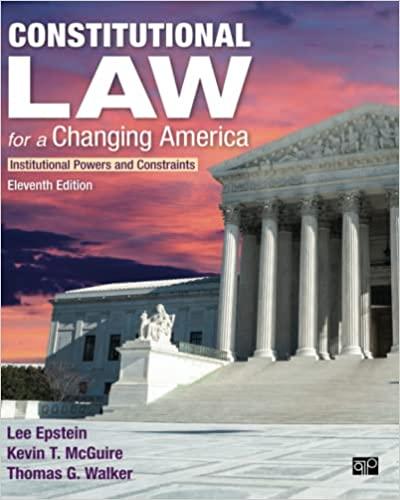Question
51. In alternative obligations, the creditor may have the right to choose the obligation to be performed if the loss is due to the fault
51. In alternative obligations, the creditor may have the right to choose the obligation to be performed if the loss is due to the fault of the debtor.*
a.True
b.False
52. In facultative obligations, there is a substitute for the principal obligation.*
a.True
b.False
53. When the principal obligation is valid and the substitute obligations is not, the obligation becomes a simple obligation.*
a.True
b.False
54. In facultative obligations, the right to choose what obligation to perform belongs to the debtor.*
a.True
b.False
55. In conjunctive obligations, several prestations need to be performed.*
a.True
b.False
56. In solidary and joint obligations, there is multiplicity of parties.*
a.True
b.False
57. In joint obligations, the parties share equally in the burden of performing an obligation.*
a.True
b.False
58. When there is multiplicity of parties in an obligation, the presumption is that the obligation is joint.*
a.True
b.False
59. In joint obligations, insolvency of one of the debtors will not increase the liability of the other debtors.*
a.True
b.False
60. In joint obligations, delay on the part of a debtor will not affect the liablity of a co-debtor.*
a.True
b.False
61. In solidary obligations, there is mutual agency.*
a.True
b.False
62. In solidary obligations, anyone of the creditors may do anything beneficial even without the consent of the other co-creditors.*
a.True
b.False
63. There is active solidarity when there are two or more creditors.*
a.True
b.False
64. In solidary obligations, a debtor is expected to pay the entire obligation without prejudice to his right to collect from his co-debtors.*
a.True
b.False
65. Divisible obligations admits of partial performance.*
a.True
b.False
66. The penal clause attached to an obligation is actually an accessory obligation.*
a.True
b.False
67. A penal takes the place of the obligation to pay damages in case of breach.*
a.True
b.False
68. When an obligation is with a penal clause, proof of actual damages is not required.*
a.True
b.False
69. When the penalty is demanded in case of only in case of breach, the penal clause is only subsidiary.*
a.True
b.False
70. A debtor cannot choose to perform the penal clause and altogether not perform the obligation already.*
a.True
b.False
71. When the debtor refuses to pay the penalty, the creditor may still collect damages in addition to the uncollected penalty.*
a.True
b.False
72. When the penal clause is void, the obligation to which it is attached nevertheless remains valid.*
a.True
b.False
73. When the principal obligation is void, the obligation is void even of the penal clause is valid.*
a.True
b.False
74. The courts may reduce the penalty when there is partial and or substantial performance of the principal obligation.*
a.True
b.False
75. When an injured party may demand the enforcement of both the penalty and the principal obligation, the penal clause is joint in nature.*
a.True
b.False
ESSAY
1. In no more than five sentences, write an essay emphasizing the importance of obligations and contracts in the life of an ordinary citizen.
2. In no more than five sentences, cite at least three situations when you could apply your basic knowledge on the Law on Obligations and Contracts.
Step by Step Solution
There are 3 Steps involved in it
Step: 1

Get Instant Access to Expert-Tailored Solutions
See step-by-step solutions with expert insights and AI powered tools for academic success
Step: 2

Step: 3

Ace Your Homework with AI
Get the answers you need in no time with our AI-driven, step-by-step assistance
Get Started


